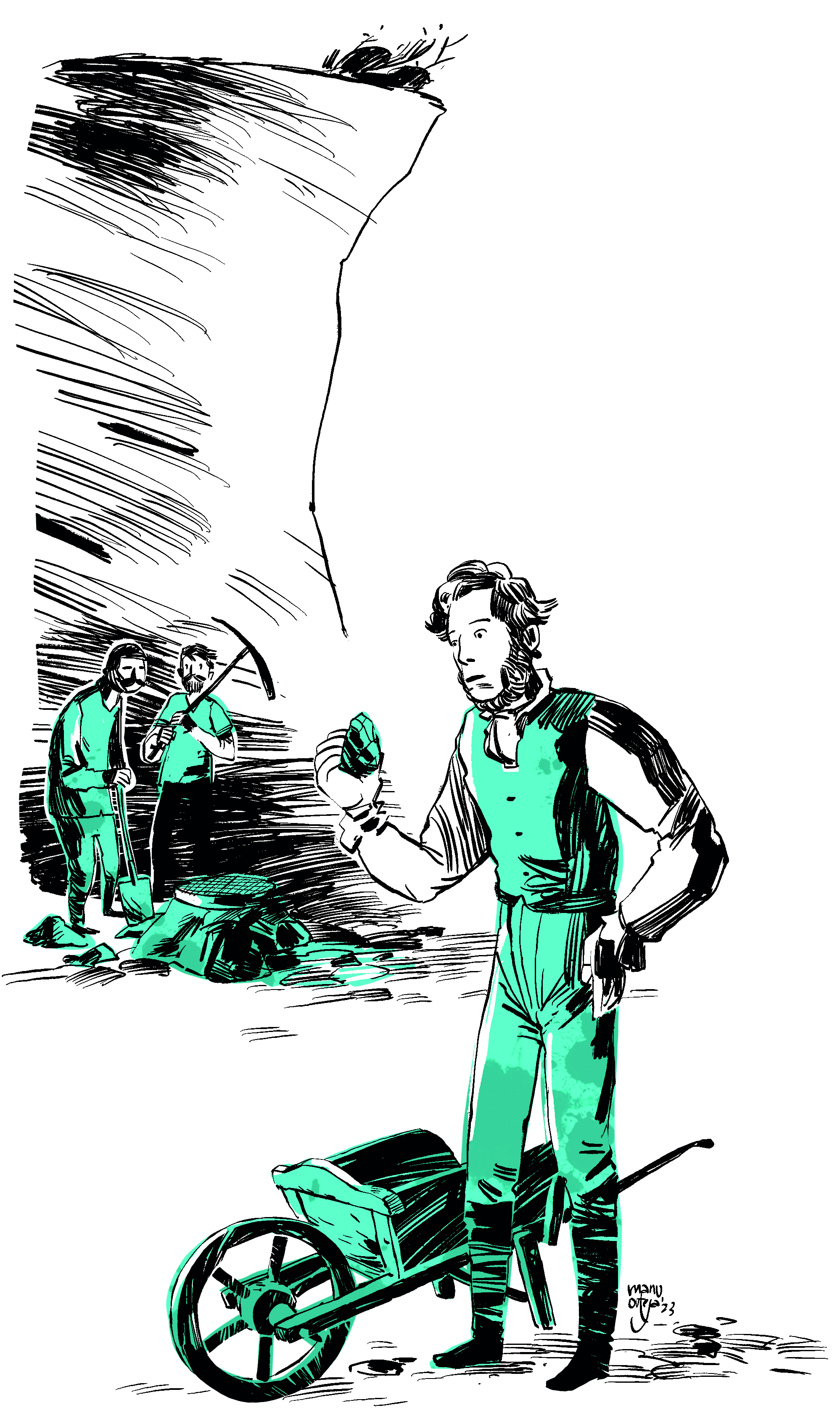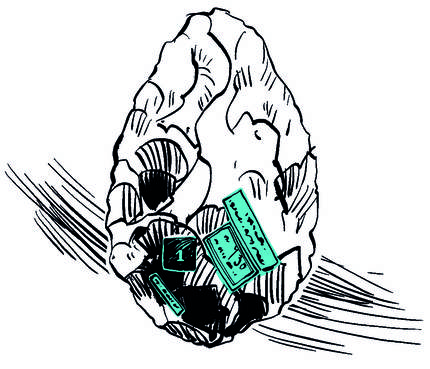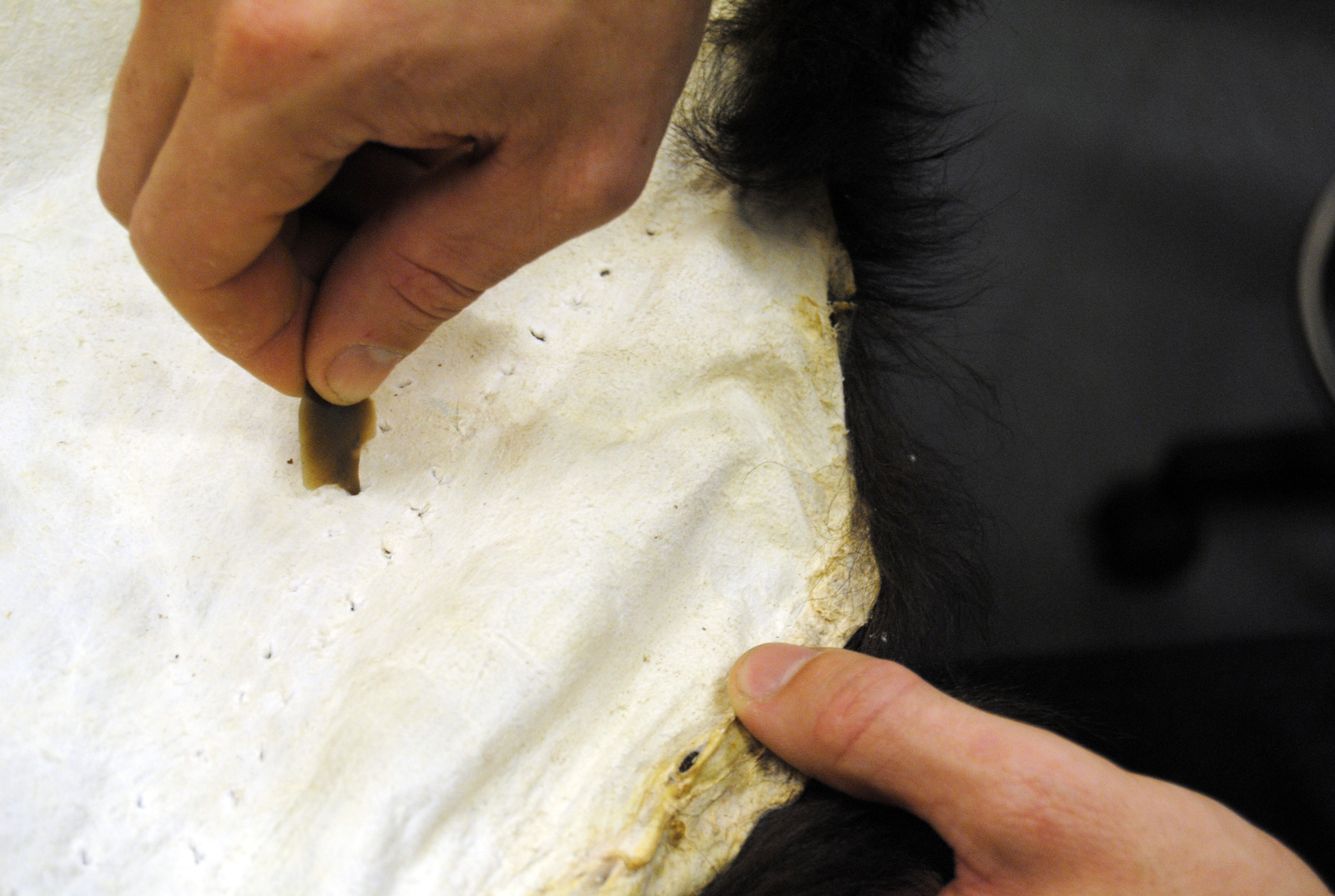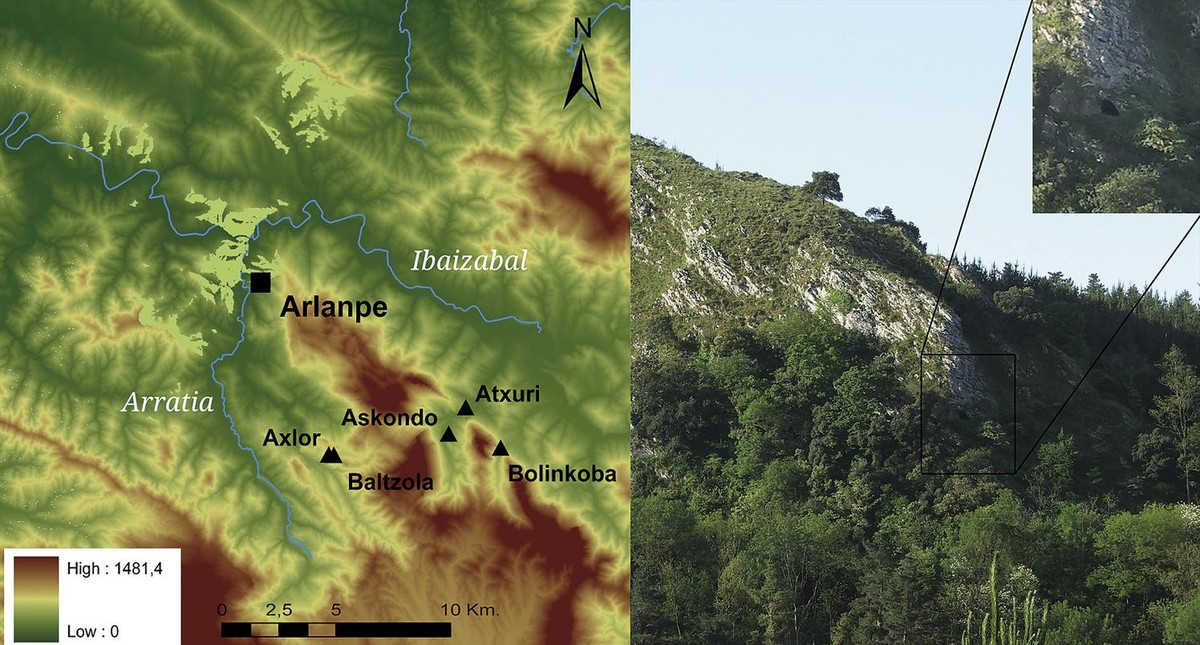Jacques Boucher de Perthes: The Discovery of Prehistory
2023/12/01 Etxebeste Aduriz, Egoitz - Elhuyar Zientzia Iturria: Elhuyar aldizkaria

In 1859, the British Joseph Prestwich and John Evans traveled north of France in Abbeville. His offices were the wine trade and paper, respectively, but he joined his passions with geology, especially in what would later be known as archaeology. Evans and Prestwich were one of the biggest experts in the field.
In Abbeville, Jackes visited Boucher de Perthes, as his discoveries and the hypotheses he was raising were crumbling. He found a series of stones that apparently had been built by man and that showed that the human being was long before what the Bible-based calculations said. Until then, few people took these ideas into consideration.
Boucher de Perthes was born in an aristocrat family. At the age of 14, his father entered the Customs Service, verifying that he had no intention or intention to study. He worked in Italy for six years and returned to France. But by then I was already very clear about what I was going to do in the future: get married and be a poet and a famous theater writer. But he would never have married, and neither in literature was he successful.
He was an eccentric man, tall, skillful in sport, swimming every day in the river (very rare habit at that time). He drank only water, gave him the same thing as eating and slept as well as in bed. It was considered the most beautiful of Eder's family. Friendly, friendly and generous. He spoke to everyone politely, even to the most innocent and unknown people.
It published a total of 49 books on topics as diverse as the benefits of free trade, reform of government administrations, measures to improve the living conditions of the poor and equal rights of women. And it funded schools to promote the education of the poor.
In 1825 he took his father's seat in Abbeville, chief of customs. The passion for archaeology emerged at that time. And that's what the new doctor who came to the city really influenced: Dr. Casimir Picard. They were great friends, who introduced curiosity and passion to the theme of human age, to the point of becoming obsession. And that is, by then, some researchers began to find clues that man could be much earlier than the Bible said. One of them was John Frere, who found in southern Britain several pieces of man-made stone.
In 1838, Boucher de Perthes himself found the first pieces of rolled songs in Abbeville. And in the years that followed, he discovered more stone utensils, along with bones from large missing mammals. He then enthusiastically undertook to defend that these instruments were man-made before the floods. Antiquités celtiques et antédiluviennes collected those discoveries and ideas.
If he had the help of his friend Picard, he may be more valued, but died in 1841 from pneumonia. Unlike Picard, Boucher de Perthes worked with little scientific rigor. He didn't find the pieces, he bought them from the quarry staff. And they, along with the real pieces, put a lot of them in. In addition, Boucher de Perthes' interpretations had much imagination and romantic. For example, he interpreted emotives as symbolic objects, rather than as instruments, and believed that some bleeding from instruments was inscriptions. The work of Boucher de Perthes suffered from important methodological errors and deficiencies.
All of this did not help him to spread such disruptive ideas. After all, it was fully accepted, as Bishop James Ussher calculated, when the man was only 6,000 years old.
Almost all French scientists faced, were tough critics and despised. For the Academy of Science, Boucher de Perthes' findings were only simple stones. They weren't there to address their occurrences. Darwin himself said that Boucher’s book of Perthes was “garbage.”
But with the visit of Prestwich and Evans, things started to change. Besides knowing the collection of Boucher de Perthes, they had the opportunity to see in situ an emotional and photograph it in the quarry of Saint Acheul. The two English scholars gave him the Boucher of Pertbarrera reason, man-made stones that, being alongside fossils of expired mammals, belonged to the same time, much older than 6,000 years. So did other later experts in Abbeville, including the prestigious geologist Charles Lyell. And that is when the French begin to accept the work of Boucher de Perthes.
In addition, more and more pieces and songs fossils were found. The finding could confirm the work of Boucher de Perthes, who arrived in 1863, when he discovered, along with some stone tools, a human jaw in Moulin-Quignon, near Abberville. He had to belong to a man before the Great Flood. This was the great discovery dreamed of Boucher de Perthes.
It soon became clear, however, that it was a fraud, committed by a quarry worker, to collect the prize he had awarded to those who found human fossils.

Gai honi buruzko eduki gehiago
Elhuyarrek garatutako teknologia







